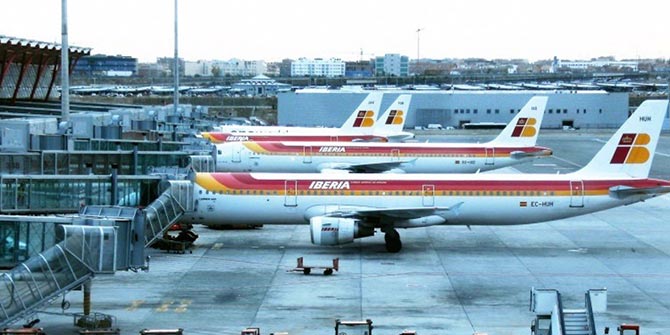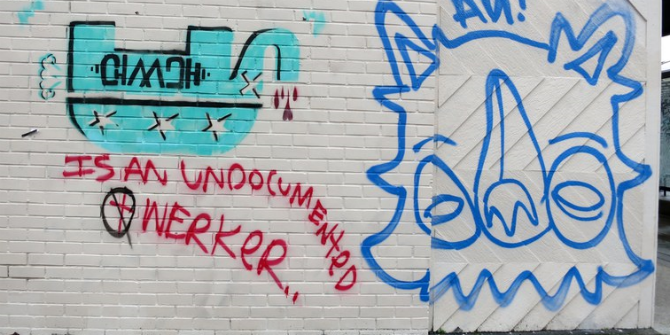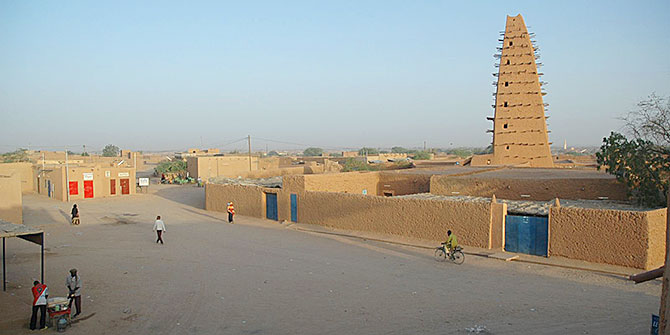LSE PfAL students Nahida Khamis and Fatouma Sokona share why collective action is needed to tackle Libya’s African Migrant Crisis
Libya’s northern coast has been considered to be a launch pad for African migrants in search of viable economic opportunities in Europe for decades. More than 100,000 refugees and migrants have set ashore in Europe per year and over 3,000 have died across the Mediterranean in 2017 alone.
The Italian and Libyan navies have been working together since signing a treaty in 2007 to repel migrants attempting to cross the Mediterranean. This has contributed to the confinement of an estimated 700,000 migrants in Libya, most of whom are detained in migration centers that are in deplorable conditions.
On the 14th of November, CNN published an exclusive report exposing the abhorrent treatment of African migrants. The report showed migrants being sold like commodities to smugglers from a starting price of 400 USD. It is reported that slave markets in Libya occur as frequently as three times a week.
The slave auction footage that shook the world was consequently submitted as evidence to the International Criminal Court for crimes against humanity. More interestingly, the documentary led to further speculations that enslavement of migrants was a reality outside Libya as well. Furthermore, according to the IOM report, an increasing number of migrants transiting through Libya are sold on “slave markets” before being subjected to forced labour or sexual exploitation.
According to the chair of African Union Commission, Moussa Faki Mahamat: “Poverty and unemployment throw them by tens of thousands on the roads that lead them to death and slavery. I am horrified and haunted by the images of African migrants being auctioned on Libyan territory”.
There has been considerably good faith among the African nations such Cameroon and Ivory Coast, which sent planes to Libya to take migrants back to their home countries. Rwanda has also stated it is willing to take in 30,000 migrants. Meanwhile, intergovernmental bodies such as the European Union and the African Union have decided to conduct ‘emergencies evacuation operations in the coming days or weeks’.

An impassioned demonstration, at the call of several organisations, took place on Saturday, 18th of November in Paris outside the Libyan Embassy. Followed by protests in London and Sweden, which called for government intervention, in order to thwart the enslavement of African migrants and denounce the “complicity” of African and Western leaders.
The UN-backed Libyan government say they are “keen” to address the issue but argue that countries from which migrants travel as well as the international community should also take responsibility.
On a more reflective note, it is imperative for the society to contemplate the importance of these occurrences especially with recent anniversary of the abolishment of slavery in Britain on 2 December.
In a modern world where technology has given voice too many people, it has become necessary to identify the dangers of relying solely on individual voices and actions especially when struggles for freedom require a collective voice. Individual voices, when combined, become a powerful tool that is required for successfully dismantling systems that create said struggles. Wielding individual voices together contributes to strong collectivism.
As the underlying issue intersects with race and the valuation of lives, representational collective politics in the media become more relevant. Social consciousness becomes an essential attribute, ideally embodied by all of the members of society that wish to see injustice ended.
In reference to Angela Y. Davis’ book, Freedom is a Constant Struggle, “We cannot always rely on governments— regardless of who is in power— to do the work only mass movements can do”. As there are multiple modes of social change, collective imagination of the future without racial and economic oppression becomes the number one priority for achieving said social change. Moreover, social consciousness is more than just being aware of the social environment but rather beginning to mobilize our intentions for the greater good— which is promoting social welfare for every single resident of this planet indiscriminately.
However, that does not exonerate governments from taking action and accountability for the crisis. It is equally important to pressure leaders by demonstrating our outrage on the institutions’ failures. On the 9th of December another demonstration is taking place outside the Libyan Embassy in London.
This is an opportunity for members of our society to express our intolerance on the abominable treatment of migrants in Libya and most importantly to show solidarity. Lastly, in a cosmopolitan democratic world, the infringement of freedom of any human being— regardless of the geographic location—is a threat to everyone.
Nahida Khamis is an MSc Environment and Development student and Fatouma Sokona is an MSc African Development at the London School of Economics and Political Science. They are both on the Programme for African Leadership at LSE Firoz Lalji Centre for Africa.
The views expressed in this post are those of the authors and in no way reflect those of the Africa at LSE blog or the London School of Economics and Political Science.





